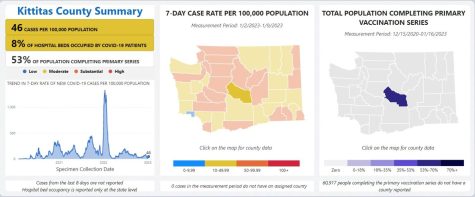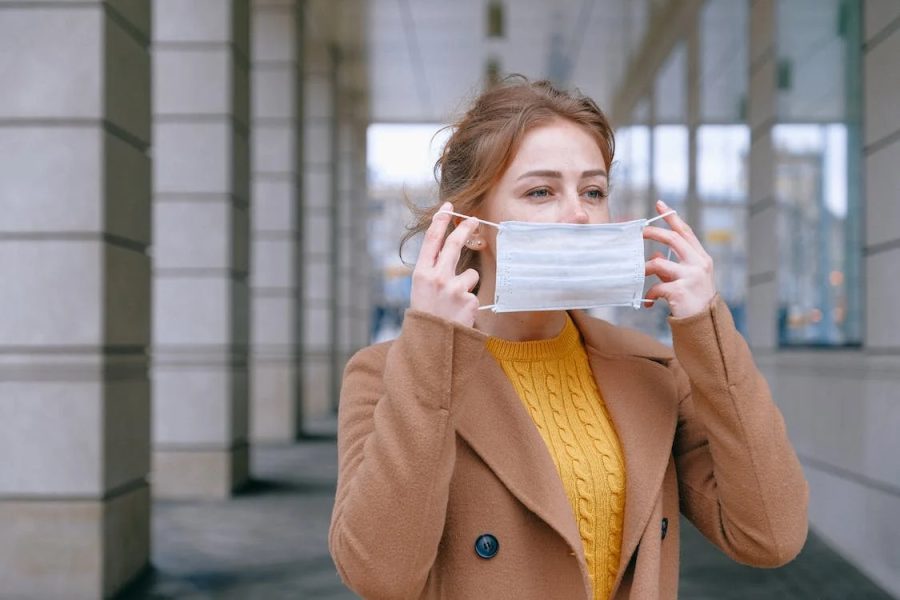CWU COVID-19 procedures remain the same as influenza cases rise
January 25, 2023
Medical Director of Student Health Services June Bredin said that CWU has seen low numbers of positive COVID-19 cases in the last two years, and said accessibility of at-home test kits may be the reason for lower cases.

“Most people are testing at home … all of the public health data is saying we don’t know how this correlates to the total numbers,” Bredin said. “We don’t have an accurate count because people are either not even bothering to test or they’re testing at home. If they’re not … they’re not following health precautions.”
According to Bredin, CWU is not being affected by the recent global surge because the surge in cases mostly stems from a new variant in Asia. Bredin said that in the event that the new variant did spread to the US the only way to properly prepare for any new variant is to stay updated on vaccinations.
Another concern that Bredin said she had was an increase in influenza cases this academic year.
According to Bredin, influenza rates were lower the past two years because of the precautions people were taking to not get COVID-19. Bredin said now that people are going out in public again, they are coming into contact with influenza with much weaker immune systems.
“We have multiple positive influenza [cases] for any single COVID positive that we have,” Bredin said. “Get vaccinated, you can do it [flu and COVID-19 vaccines] all at once.”
Bredin said she believes CWU is handling COVID-19 well.
“I feel our CWU administration has consulted with the appropriate public health officials and are following current common sense recommendations, and are responsive to new information as it comes out,” Bredin said.
Students weigh in
Students have mixed feelings about how CWU is handling COVID-19 restrictions.
“I think the school should make masks mandatory again and stay home if sick,” Bizzy Evans said.
According to Bredin, whether CWU makes masks mandatory again depends on what local,state and administration officials decide in response to any changes.
“CWU will continue to work closely with local and state officials, specifically Dr. Mark Larson (Kittitas County public health department’s health officer), Governor Jay Inslee and Washington Department of Health Secretary Umair Shah,” Bredin said. “Our shared governance groups on campus will work with President Wohlpart and the Executive Leadership Team on any formal decisions about masking requirements.”
Other students have said they don’t think CWU should have any restrictions until a surge in cases gets worse.
“I haven’t seen any public cases recently. I’ve been coming back to class and there’s no masks or anything,” Senior majoring in media and journalism Isaiah Salevao said. “I think they’re doing a pretty good job so far.”
Salevao said he thinks the reason for a decline in public cases of COVID-19 is because students have a better understanding of the disease, and know to stay home if they don’t feel well.
Student Luca Kuzma said, “[COVID-19 restrictions] depend on the situation. If there’s a spike of COVID, then more drastic measures, but if not, I think it’s fine the way it is.”
Bredin said that her primary concern right now is vaccine fatigue, not just with COVID-19 but also influenza and RSV.
“After two years of required vaccinations, rates of voluntary COVID boosters and other vaccinations are relatively low this year,” Bredin said. “It’s fueling the increased incidence of acute influenza, including cases with fatal complications.”


